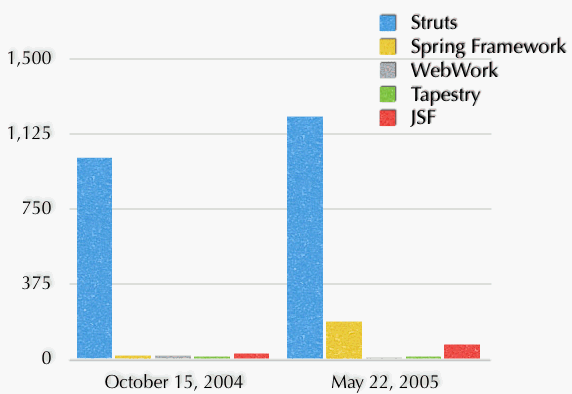[ANN] Equinox 1.4 Released
This release is mainly to support Spring 1.2.1 and Hibernate 3.0.5. The default database is now PostgreSQL because of an issue with Hibernate 3 and HSQL. All of the frameworks used in Equinox, as well as its build/test system is explained in Spring Live. Detailed release notes are below:
- Added "typeMismatch.java.util.Date" key to messages.properties (for Spring)
to display a friendly error for invalid dates.
- Changed to use PostgreSQL as the default database because of an issue with
HSQL and Hibernate 3.0.
Read more »
- Added "clear" target to build.xml for clearing out the database.
- Added MySQL JDBC Driver and jdbc.properties.mysql for easy switching to
MySQL.
- Changed UserWebTest (jWebUnit test) to get lastInsertedId from UI using
HttpUnit rather than using UserManager (Richard Easterling).
- Changed spring-sandbox.jar to springmodules-validator-0.1.jar since
Commons Validator support for Spring has moved to the Spring Modules
project.
- Changed all Spring XML files to use new "value" and "ref" attributes.
- Dependent packages upgraded:
- Cargo 0.5
- Log4j 1.2.9
- Hibernate 3.0.5
- iBATIS 2.1.0
- OJB 1.0.3
- Spring 1.2.1
Download. For more information about installing the various options, see the README.txt file.
Demos:
The basic Equinox download contains all the various web and persistence framework options in the "extras" folder. If you have issues replacing the web or persistence framework (or both), please enter an issue in JIRA and I'll build and upload a customized version for you.





